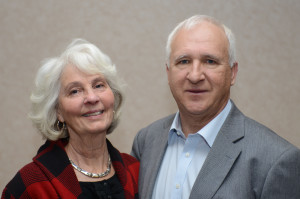Dear Brothers and Sisters in Christ,
 David Letterman, who hosts the CBS Late Show, is known for his humorous Top Ten lists. I’m often asked for my top ten lists—of movies, books, songs, foods and beers. You probably have lists of your own. Over the last few years, some of my articles have sprung from my top ten list of Bible verses. Here are six of them:
David Letterman, who hosts the CBS Late Show, is known for his humorous Top Ten lists. I’m often asked for my top ten lists—of movies, books, songs, foods and beers. You probably have lists of your own. Over the last few years, some of my articles have sprung from my top ten list of Bible verses. Here are six of them:
- “The one who does not love does not know God, for God is love” (1 John 4:8, NASB).
- “It is for freedom that Christ has set us free. Stand firm, then, and do not let yourselves be burdened again by a yoke of slavery” (Galatians 5:1).
- “For God did not send his Son into the world to condemn the world, but to save the world through him” (John 3:17).
- “God demonstrates his own love for us in this: While we were still sinners, Christ died for us” (Romans 5:8).
- “Therefore, there is now no condemnation for those who are in Christ Jesus” (Romans 8:1).
- “For Christ’s love compels us, because we are convinced that one died for all, and therefore all died. And he died for all, that those who live should no longer live for themselves but for him who died for them and was raised again” (2 Corinthians 5:14-15).

It’s motivational to me to read verses like these—I refer to them as “gold nugget verses.” Over the last several years, as I’ve continued learning about God’s amazing, never-ending love, my list of favorite verses has changed. Searching them out has been like mining for gold, a precious substance that occurs in nature in many forms and shapes—plates, scales, microscopic pieces, large spongy pieces and what is referred to as “hackly masses.” Like gold in all its amazing, unexpected variety, God’s unconditional love, which is all around us, is found in unlikely places and forms.
Theologian T.F. Torrance describes that love in this beautiful summary of the gospel:
God loves you so utterly and completely that he has given himself for you in Jesus Christ his beloved Son, and has thereby pledged his very being as God for your salvation. In Jesus Christ God has actualized his unconditional love for you in your human nature in such a once for all way, that he cannot go back upon it without undoing the Incarnation and the Cross and thereby denying himself. Jesus Christ died for you precisely because you are sinful and utterly unworthy of him, and has thereby already made you his own before and apart from your ever believing in him. He has bound you to himself by his love in a way that he will never let you go, for even if you refuse him and damn yourself in hell his love will never cease. Therefore, repent and believe in Jesus Christ as your Lord and Savior (The Mediation of Christ, p. 94).
Our appreciation for God’s love grows as we read the Bible, for Jesus, who is God’s love, is the focus of all Scripture. Thus it saddens me to learn that recent surveys show a rapid decline in Bible reading among Christians. That’s ironic in light of the fact that 87% of those responding to a survey conducted by Bill Hybels’ group concerning spiritual growth listed “getting help from their church to understand the Bible in depth” as their number one spiritual need. It’s also ironic that respondents identified, as one of the top weaknesses of their church, a failure to help members understand the Bible.
The way we discover the gold nuggets in Scripture is by digging them out through repeated, thoughtful Bible study (see the cartoon above). Recently, I was studying the book of Micah (one of the Minor Prophets) where I came across this gold nugget:
Who is a God like you, who pardons sin and forgives the transgression of the remnant of his inheritance? You do not stay angry forever but delight to show mercy (Micah 7:18).
Micah declared this truth concerning God at the same time Isaiah was prophesying a coming exile. It was a time, seemingly, of doom and gloom. Yet, Micah was filled with hope because he knew that God delights to show mercy. The Hebrew word here translated “mercy” has its roots in the language of covenants made between persons. Such covenants involve promises of faithful loyalty that are binding, yet freely given. And so God’s mercy is to be understood here as promised, sure mercy. Micah mentions that God had promised this mercy to Israel’s forefathers, Abraham, Isaac and Jacob, despite the fact that they were undeserving. It’s encouraging and motivating to realize that God, in his mercy, does the same for us.
The Hebrew word for mercy used in Micah and elsewhere can also be translated as “free and faithful love” or as “steadfast love.” We can rest assured that God’s mercy will never cease because it is his nature to be faithful and he has given his promise. God will never move from his position of love. He will never fail to be merciful to us. For that reason, we too can confidently cry out, “God, have mercy on me, a sinner” (Luke 18:13). Now there’s a gold nugget verse!
Mining Scripture with you,
Joseph Tkach
P.S. Here are a couple of videos that Pastor Charles Young in Atlanta recommended. I think you’ll enjoy them. They bear a humorous, yet important message about extending God’s love by inviting people to church.







